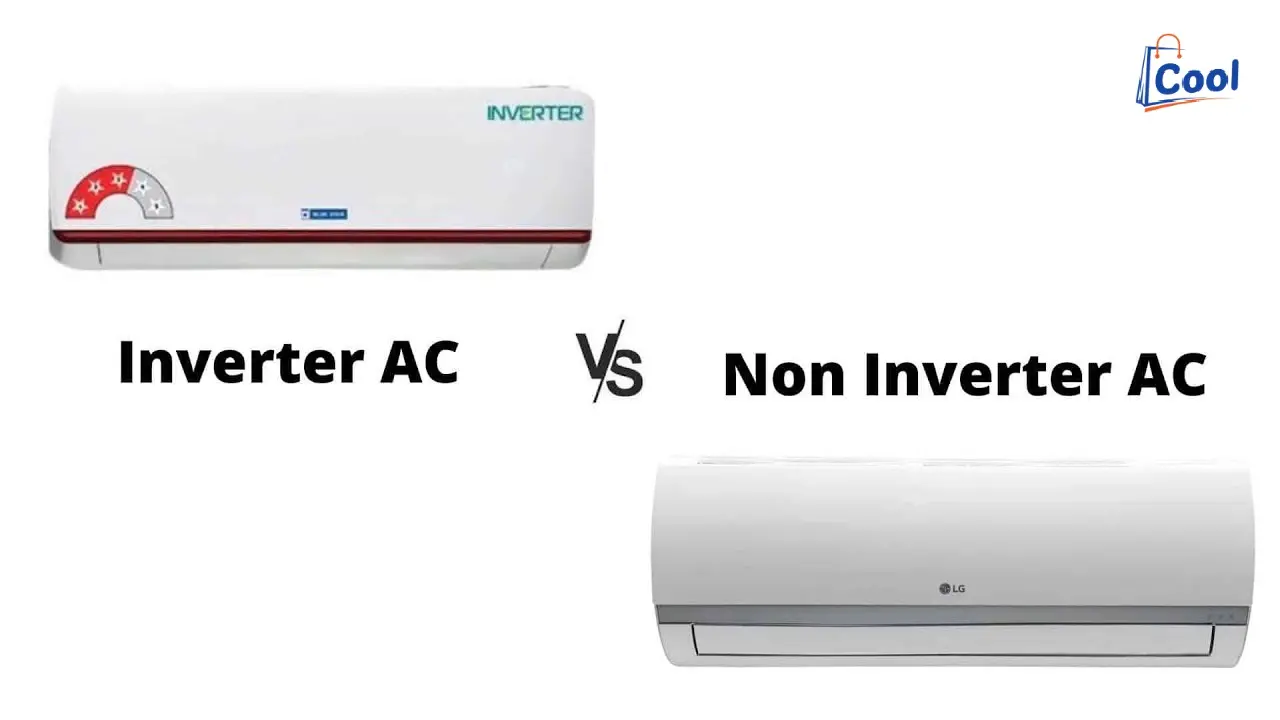Inverter AC vs Regular AC: The Wiser Option for Energy Savings

Air conditioners are the go-to option for cooling houses and offices in tropical weather conditions. However, the question on everyone’s mind is: Do I need an inverter AC or a regular AC? The solution to this dilemma lies in energy savings, efficiency, and future gains.
We will illustrate what is the difference between an inverter AC and a regular AC, point out their power consumption, and present a real-life case study of how replacing a normal AC with an inverter AC saved one of our customers some electricity bills.
What is a Normal AC?
A regular (non-inverter) AC operates on a straightforward principle. The unit’s compressor turns on and off to cool the room. Suppose the room heats up, for instance. The compressor runs at full capacity when it comes on. When the desired temperature is achieved, it shuts off totally.
This cycle is done repeatedly. Although this seems to be efficient, the repeated turning off and on of the compressor uses a lot of energy. It also strains the system, decreasing its longevity of the system and leading to higher electricity bills.
What is an Inverter AC?
An inverter AC, however, employs sophisticated technology. Rather than switching on and off the compressor, it varies the compressor speed based on room temperature.
If, for example, your room is already cold, the inverter AC will keep the compressor operating at a slow speed to stabilize the temperature, rather than switching it off. This guarantees:
- Ongoing cooling without temperature fluctuation
- Power consumption is minimized
- Extended life of the AC unit
- Lower noise
I casinò online hanno trasformato il settore del gioco d’azzardo, offrendo agli utenti la possibilità di divertirsi con i loro giochi preferiti direttamente da casa. Con pochi clic è possibile accedere a un’ampia selezione di titoli – dalle slot al poker, dal blackjack alla roulette – senza dover raggiungere un casinò fisico. Questa facilità di accesso ha aperto le porte del gioco digitale a un pubblico internazionale, permettendo a giocatori di ogni parte del mondo di vivere esperienze dinamiche e coinvolgenti.
Oltre alla comodità, molte piattaforme propongono bonus e promozioni interessanti, pensati per attirare sia i nuovi utenti sia i giocatori più esperti. Allo stesso tempo, i siti di gioco adottano tecnologie avanzate di sicurezza per garantire un ambiente protetto e responsabile, unendo intrattenimento e tranquillità.
Uno dei vantaggi principali dei casinò online è la libertà di giocare in qualsiasi momento e da qualsiasi luogo, purché si disponga di una connessione Internet. Questa flessibilità è ideale per chi ha una vita frenetica e desidera concedersi qualche momento di svago nei ritagli di tempo. Un altro aspetto molto apprezzato è la varietà di giochi disponibili, pensati per soddisfare gusti ed esperienze differenti: dai principianti ai giocatori più esperti, ognuno può trovare l’opzione più adatta. Per chi desidera approfondire questo mondo in continua evoluzione, è importante restare aggiornati sulle tendenze e sulle novità del settore.
A questo proposito, questo contenuto può risultare particolarmente utile, perché offre informazioni dettagliate e consigli pratici per migliorare l’esperienza di gioco sia dei nuovi utenti sia di chi ha già familiarità con i casinò online.
Such brands as LG Inverter AC and other inverter split ACs are gaining immense popularity due to these advantages.
Online gambling continues to gain momentum in the Philippines, and players increasingly look for platforms that combine safety, low deposit options, and reliable game providers. In this context, https://thenationonlineng.net/casino-non-aams-deposito-minimo-10-euro-siti-sicuri-che-accettano-ricariche-basse/ stands out as one of the most useful resources for identifying secure casinos that accept small deposits and offer transparent terms. The site is designed as an accessible guide for users seeking trustworthy platforms without needing to invest large amounts from the start.
This resource provides detailed evaluations of licensed and reputable online casinos available to players. Each review highlights essential aspects such as minimum deposit requirements, welcome bonuses, payment methods, withdrawal limits, and security standards. Much like well-known low-deposit casino listings, the platform focuses on operators that offer fair conditions, fast transactions, and a broad selection of games including slots, table games, and live dealer titles. This makes it easy for players to compare options and choose a site that matches their budget and preferences.
Beyond its casino rankings, the site offers practical guides covering how to pick a safe low-deposit casino, how bonus terms work, and which payment options provide the fastest and most convenient transactions. These resources are especially valuable for newcomers who want to play responsibly and avoid unreliable platforms. With its emphasis on transparency, responsible gaming, and verified operators, the site acts as a trusted reference point for anyone exploring the online gambling market.
Online gambling in the Philippines has been rapidly growing, and one of the leading platforms that caters to this demand is https://casinophilippines10.com. This website provides a comprehensive guide for both new and experienced players looking to engage in safe and enjoyable online casino games. Whether you are a fan of slots, table games, or live casinos, the site offers a wide variety of options to suit all preferences. Their easy-to-navigate interface ensures that players can easily find their preferred games without any hassle.
One of the key features of Casino Philippines 10 is the focus on providing detailed and up-to-date reviews of casinos operating within the Philippines. The site provides insightful information on the best bonuses, payment methods, and promotions available to players. Whether you are looking for a new site to try or just want to ensure the one you’re using is reputable, Casino Philippines 10 offers a wealth of resources to make informed decisions. Their expert reviews also highlight aspects such as customer support, game variety, and mobile compatibility, ensuring that every player’s needs are met.
In addition to the comprehensive casino reviews, Casino Philippines 10 provides essential guides for players, covering topics such as how to choose the right casino, understanding the rules of popular games, and tips for responsible gambling. These resources are invaluable for both beginners and seasoned players who want to enhance their gaming experience while staying safe and informed. With a focus on security and fairness, the site ensures that users can enjoy a worry-free gambling experience in the Philippines.
Energy Savings: Inverter AC vs Normal AC
Let us put both side by side:
- Normal AC: Excessive energy consumption owing to excessive switching on/off
- Inverter AC: Saves 30-50% more electricity by operating at variable speeds
Ultimately, although inverter ACs are a bit more expensive initially, they are repaid in terms of lower electricity bills.
Real-Life Case Study: From Normal AC to Inverter AC
One of our customers was employing a normal split AC in his office. In summer, his electricity bills were very high, and the AC couldn’t cool the office for long hours.
We calculated his needs and suggested installing an inverter split AC. The customer agreed, and we upgraded the old one with a new LG Inverter AC.
Outcome after a month
- Electricity bills reduced by almost 35%
- Cooling became regular and pleasant
- Office climate got better, and the AC worked silently without repeatedly turning on and off.
This case study illustrates how switching to inverter technology results in significant energy savings and enhanced comfort.
Benefits of Inverter AC
- Energy Efficiency – Conserve 30-50% more electricity than regular ACs
- Improved Cooling – Provides constant temperature without variation
- Longer Lifespan – Less stress on the compressor
- Eco-Friendly – Reduced energy consumption decreases carbon footprint
- Quieter Operation – No noise from the compressor switching on and off
Should You Buy an Inverter AC
If you are interested in long-term savings, comfort, and dependability, then an inverter AC is best for you. A regular AC might look less expensive at first, but the increased electricity bills and reduced lifespan make it more expensive in the long term.
Particularly in a nation like Saudi Arabia, where the usage of AC is high during summer, investing in an inverter AC is a smart financial and environmental move.
Conclusion
In the case of Inverter AC vs Normal AC, the winner, hands down, is the Inverter AC. It is more energy-efficient, saves on electricity bills, offers constant cooling, and has a longer life. As observed in the case of our client, a change from normal AC to an LG inverter split AC saved energy bills by 35% but enhanced cooling performance. If you wish to experience comfort and save more on your energy expenses, then it is the right step to upgrade to an inverter AC.
